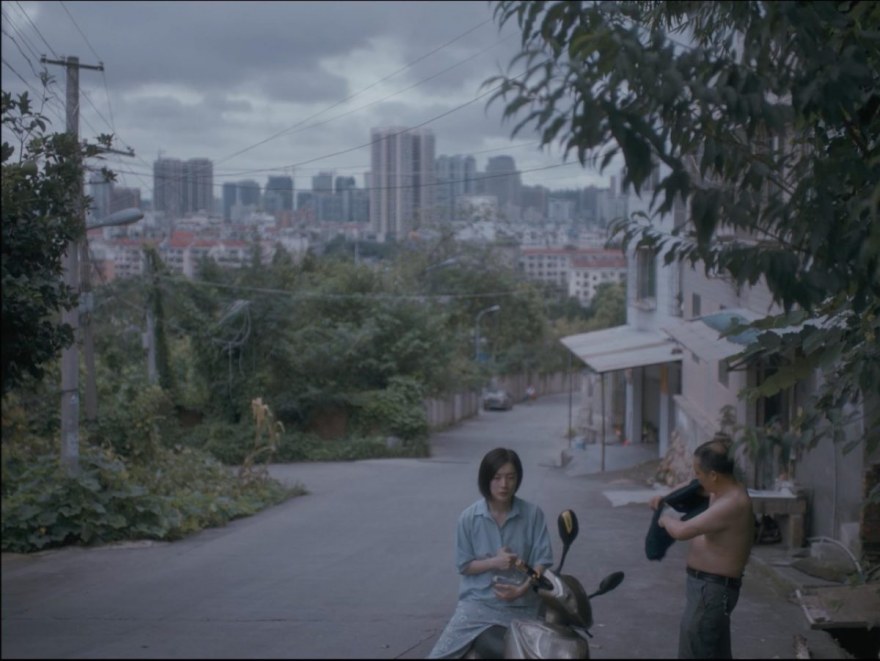Tea time with What do you Know About the Water and the Moon
An interview with Jian Luo, director of What do you Know About the Water and the Moon
Why did you choose this particular title?
Water flows away but is never lost; the moon waxes and wanes but neither increases nor diminishes. When viewed from a changing point of view, the whole universe passes in the blink of an eye; from a changeless perspective, all creatures are imperishable, ourselves included. In this film, we follow a young woman on a private journey. We experience her reality-a reality that’s not shared- except when we put ourselves inside her head with the help of cinema. The title of this film is based on my favourite poem from the Song dynasty. I think film and poem are two great mediums for helping people to experience reality in different perspectives.
Is abortion a particularly sensitive topic where the film is set? What did you want to explore by choosing this as a subject?
The Chinese people I grew up with have a low tolerance on topics that aren’t cheerful and flowery. Maybe it is because life is hard enough and full of boundaries. When you are used to not sharing negative and private feelings with your closest relatives, to suddenly announce publicly these feelings becomes a sin. But is it really? At the end of the film when she stands still, feeling puzzled, the world around her continues to move on at its own speed. That pretty much tells about my relationship with my motherland: nobody waits for me, nobody recognizes my story. After a while it really makes me think: “am I abnormal to always have the urge to talk about things that no one cares about?” While in the driver’s seat, it is with these questions that I decided to talk about abortion.
What’s the relevance of the octopuses and jellyfish?
It is one of the many absurd moments in the film, an intersection between fantasy and realism. When the jellyfish stops moving in the vase, for the first time Yang starts to care about it. She’s been debating what to do with it but she never thought about the possibility that it might not be up to her. The octopus startles her, drags her back into reality. But to her, it feels like she’s been confronted by a pool of dead sea creatures. Something that looks just like the jellyfish she carries; and both dead. The dead octopus raises the question she’s been secretly asking herself: am I responsible? As she walks away, everyone on the street is looking at her. The barbecue vendor even yells and points at her. To me, this scene is a moment of interrogation.
Can you tell us a bit more about the city it’s shot in? Why pick that particular location?
The film is set in my mother’s hometown, a small city southwest of China. Due to the year-round floods and earthquakes, it doesn’t have much left to offer, except for its very hospitable citizens and the legendary LED light show every night. From 7pm to 10:30pm, the city is lit up by colorful LED panels on all residential buildings alongside the river, hanging right outside of everyone’s balconies. My grandfather told me how there used to be fireflies everywhere when he was young. But for the past few years, since the city was always at its brightest during the fireflies mating time, making it impossible for them to locate their mates, fireflies have disappeared in this region.
Do you think that your film could be the voice that could speak for anyone considering herself as a woman?
When I was in China, I always felt as if lacking a sense of security for anonymous reason; and when I moved to the U.S, the feeling didn’t change. So I realized that this unspeakable fear that I had against no one was the consequences of this patriarchal system alive somewhere in the subconscious and which is frightening and unhealthy for both men and women. In this film, I chose abortion as my subject but my intention is not to discuss it from a political point of view, but to truthfully depicts things I care about – private feelings, a sense of humour, the different lifestyles in a small city of China- and that I hope my audience can be connected to.
Would you say that the short film format has given you any particular freedom?
It is a self-funded project and short film was all I could afford. I imagine making a feature would have given me more creative freedom in a way, for with a longer period of screen time, I would have been able to dig deeper into the character’s world and give the audience more access to it.
What do you Know About the Water and the Moon is being shown in International Competition I14.








